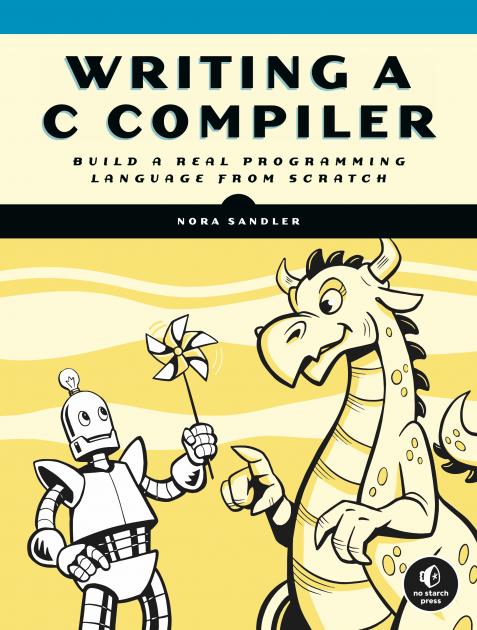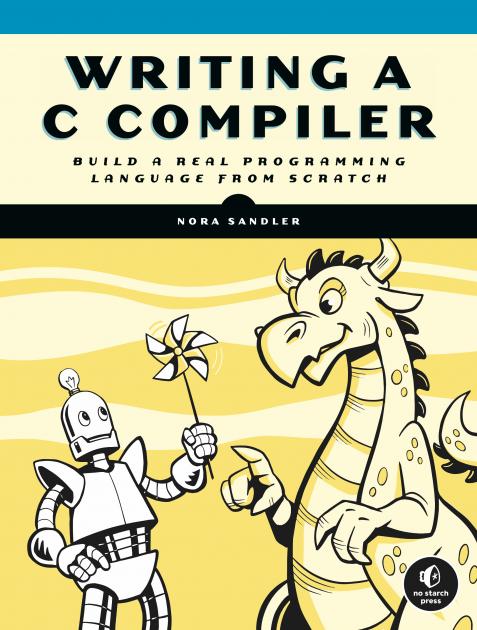Writing a C Compiler | Build a Real Programming Language from Scratch | Nora Sandler | July 2024 | No Starch Press | 792 pages | ISBN-13: 9781718500426
Writing a C Compiler | Build a Real Programming Language from Scratch | Nora Sandler | July 2024 | No Starch Press | 792 pages | ISBN-13: 9781718500426

Writing a C Compiler

Book Description
Writing a C Compiler will take you step by step through the process of building your own compiler for a significant subset of C—no prior experience with compiler construction or assembly code needed. Once you’ve built a working compiler for the simplest C program, you’ll add new features chapter by chapter. The algorithms in the book are all in pseudocode, so you can implement your compiler in whatever language you like. Along the way, you’ll explore key concepts like:
- Lexing and parsing: Learn how to write a lexer and recursive descent parser that transform C code into an abstract syntax tree.
- Program analysis: Discover how to analyze a program to understand its behavior and detect errors.
- Code generation: Learn how to translate C language constructs like arithmetic operations, function calls, and control-flow statements into x64 assembly code.
- Optimization techniques: Improve performance with methods like constant folding, dead store elimination, and register allocation.
Compilers aren’t terrifying beasts—and with help from this hands-on, accessible guide, you might even turn them into your friends for life.
Author Bio
Nora Sandler is a software engineer based in Seattle. She holds a BS in computer science from the University of Chicago, where she researched the implementation of parallel programming languages. More recently, she’s worked on domain-specific languages at an endpoint security company. You can find her blog on pranks, compilers, and other computer science topics at https://norasandler.com/.
